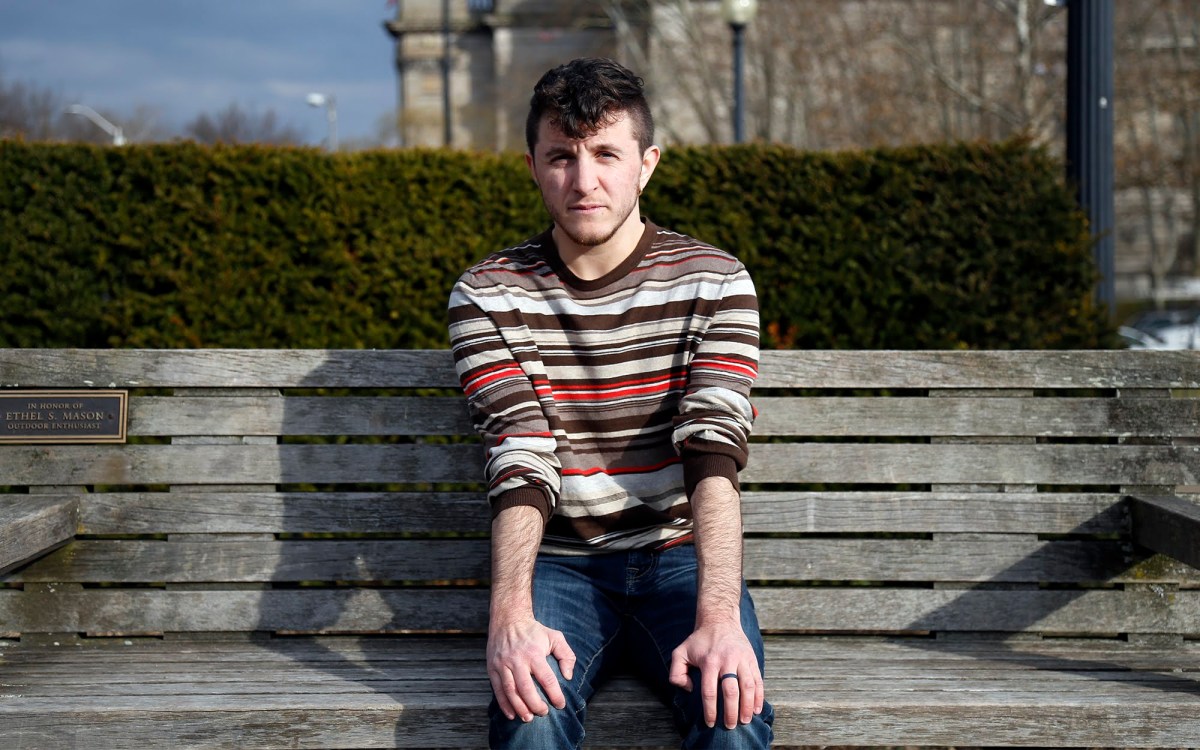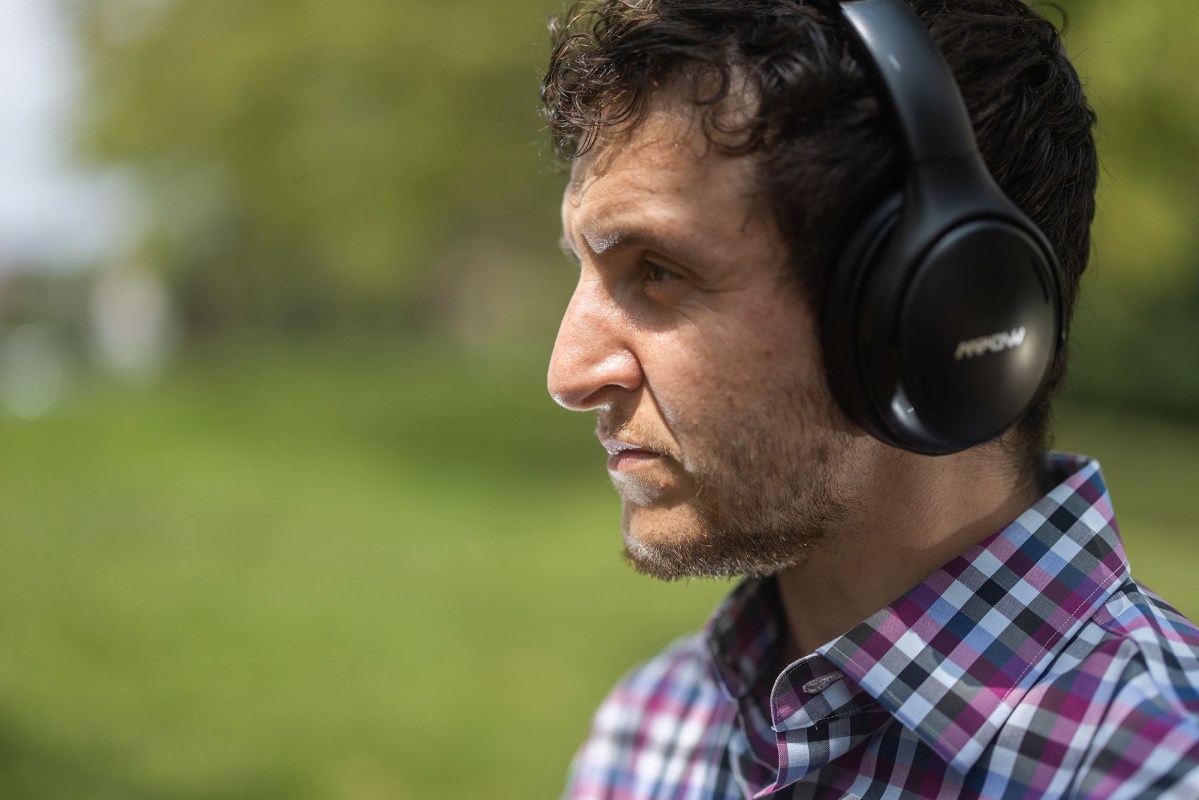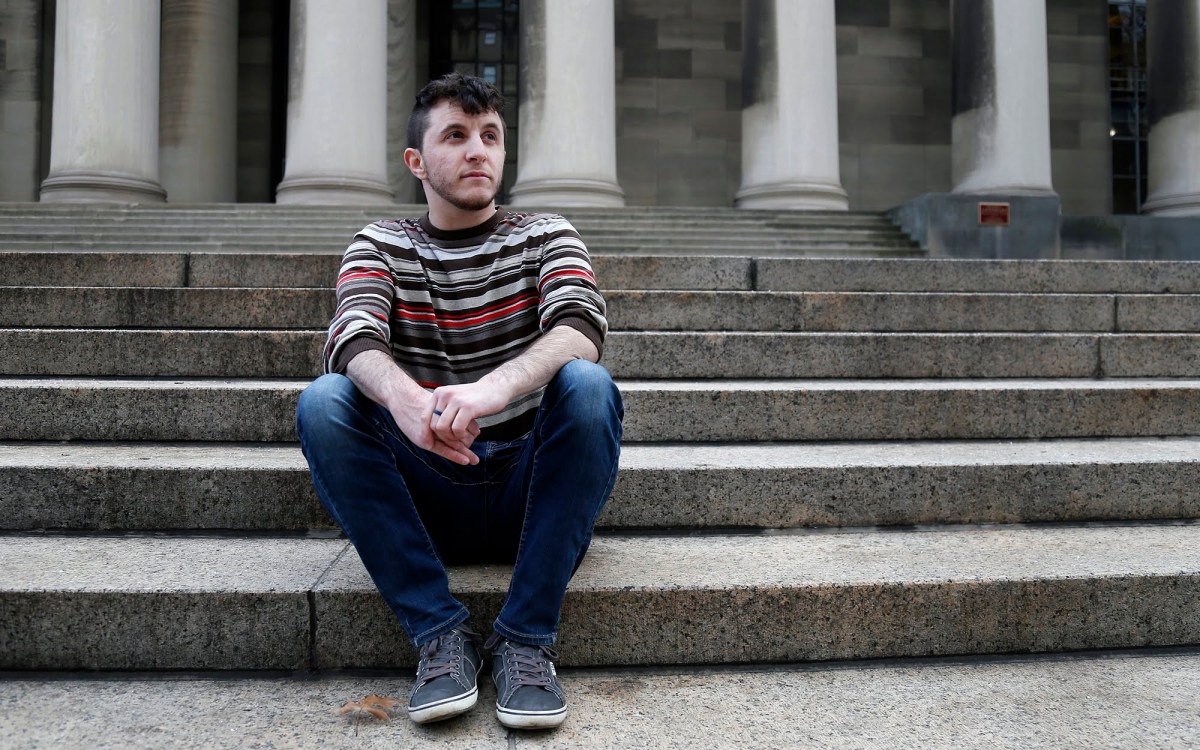I’ve been looking for moments of joy recently, even though I’m not sure I should.
The search for joy seems deeply inappropriate — maybe even offensive — considering how we are watching as the world plunges into despair, hardship, grief, loss and trauma. Yet I find myself thinking that reminding ourselves and each other about joy — even those small pockets of joy that may not feel worth noting — would help all of us increase our capacity for hope and empathy.
Being disabled, it’s easy to get caught up in the trap of thinking that any happiness I experience should be completely separate, maybe even disconnected, from anything related to disability. But what if the way I experience joy is intrinsically linked to my experience of being disabled?
As an autistic person, I’m well aware of the stereotypes that exist about autistic people, one of the most common ones being that we are uncaring and unfeeling “robots” who lack basic human empathy. This misconception — which has existed for decades, even among some (miseducated) professionals — creates a gap in how people look at, and recognize, the emotions of autistic people.
The misconception sets up misunderstandings when, say, I respond to tragedy by fixating on a favorite TV show or sports team, in what is actually a bid to balance intense empathy with moments of joy. To close that gap, we need to counter the myth itself, by showing how our vast capacity for emotions — specifically joy — is deeply intertwined with our empathy.
I’ve been in several interactions with maybe well-meaning (but ill-prepared) people who will spend one breath complimenting my insight into my (and others’) emotions. Then they’ll spend their next breath either becoming impromptu diagnosticians deciding I cannot possibly be autistic, or trying to congratulate me for how I “don’t seem autistic and that’s a good thing.” There seems to be an expectation that I will have and display just the right amount of emotion and sensitivity, but I don’t know what that amount is. No one has ever told me until after the fact, when I’m told I’ve done it wrong (again).
It takes two to miscommunicate
In 2012, British psychologist and sociologist Damian Milton, who is himself autistic, coined the term “double-empathy problem” to expand upon and describe a theory that looks at the role of empathy (or the lack thereof) in the context of conversations, particularly where a miscommunication occurs. Milton rebukes the myth that the fault for misunderstandings and miscommunications falls on the shoulders of the autistic person, simply because they are autistic and supposedly “lack empathy.” Instead, Milton theorizes that the problem is a miscommunication on the part of both people in a given interaction. He says that the issue is as much about the autistic person misunderstanding as it is about non-autistic people misunderstanding.
From loving ‘pandemonium’ to enduring the pandemic, ‘disability pride’ has proved elusive
This theory gives me a sense of relief and sows some hope: Maybe once it gains traction, misunderstandings and miscommunication will go from being “an autism problem” to being a human problem, one that is bound to come up any time one person interacts with another person. In this way, Milton encourages us to remove the inherent blame on autistic people and with it the weight of every miscommunication that has, for too long, fallen on our shoulders.

While there are aspects of autism that do cause impairment and require varying levels of support and accommodation — I sometimes get upset when plans go awry and I have to wear noise-canceling headphones just to exist in the world with any level of comfort — I see no impairment in the potential for joy that autistic people, like non-autistic people, have. Emotions are complicated and nuanced, perhaps even more so for an autistic person, and our impairment is often tied to the experience of being autistic in an ableist world.
Even a basic Google search of the word “autism” brings results based on common queries such as: “Can an autistic person have a normal life?” Another website claims to give autistic people tools to “live fully.” Both of these results, while mostly benign in their wording and far from the most disparaging rhetoric about autistic people, are problematic. Each implies that an autistic person, simply because they are autistic, lacks the ability to achieve true fulfillment and purpose like their non-autistic peers. It boosts the myth that an autistic person is not capable of living a full life, or that our version of a full life would be one devoid of autism.
This focus on impairments is damaging on a communal level, as well as on an individual level. So much of society’s understanding of autistic people is based on lacking — a lacking of communication, assumed lacking of the capacity to feel or express emotions — but all of that lacking is based on neurotypical standards, on what neurotypicals consider “good,” “right” and “normal.”
Coping with ‘Friends’ quotes
When I engage with my special interests, there is not a sense of lacking, but a sense of fullness. Whether it’s the TV show “Friends,” the Pittsburgh Penguins or the library system, interests that might be simple or fleeting for some are so much more for me.
My special interests are as much a kind of coping skill as they are a way of making sense of, and dealing with, the world around me. During those times when the world feels completely upside-down, it is my special interests to which I return. The time I spend engaging with them is what recharges me, and what increases my capacity to make sense of this oft-confusing and too-loud world.
There’s a tug-of-war: I need to access joy to maintain empathy and hope, but also, I fear that looking for joy isn’t appropriate at times like these.
Spending time talking about, or watching, something I love unlocks a level of unbridled joy. I can sit and talk for hours about the show “Friends” and how many episodes there are in total (236). I can tell you about how Bruce Willis (who played Paul Stevens in Season 6) agreed to a guest appearance on the show only after he lost a bet to actor Matthew Perry (who played Chandler Bing). I can recall a quote or scene pretty much on cue and find a way to bring it up in an ordinary conversation.
Or I can tell you all about the Pittsburgh Penguins; I can identify the majority of the players from the last 10-plus years by name and number. Or I can talk about how the workings of the Carnegie Library of Pittsburgh’s request system intrigue me, and how to finesse the process of requesting a book at just the right time so as to minimize the wait. These kinds of small, but intense, joys are ones that, I fear, non-autistic people don’t have the ability to understand.
In the American version of the television show, “The Office,” in the episode “New Leads” (Season 6, Episode 19), Michael says to Dwight, “I would like your undivided attention, please,” to which Dwight responds, “You couldn’t handle my undivided attention.” While Dwight Schrute, who many fans think could and should be coded as an autistic person, is not talking about autism in the scene, his response resonates deeply with me as an autistic person. Non-autistic people are often ill-prepared for the level of depth and complexity we bring to topics we love deeply and intensely.
I worry that I haven’t done enough to ‘earn’ my joy, or that maybe I don’t have the right to experience it at all — at least not in the ways I feel it. Sometimes, it feels as though the conditions—the what, how, when, where and why — of experiencing joy as an autistic person take a backseat to non-autistic people’s narratives of experiencing joy. So many of us are told to temper our enthusiasm about something we love.
Maybe my joy, like me, is inherently autistic.
My capacity for finding joy in the small things is not naïve; it is necessary. It is one of the many ways I have learned to survive in a world not made for people with brains like mine.
During turbulent times such as these, it is especially damaging when people perpetuate the falsehood that autistic people cannot feel empathy. For all of us — autistic and not — our willingness to find and feel joy and hope when there seems to be none is not what gets in our way; it is what gets us through.
Finding joy is essential to having and maintaining empathy. So when you ask me how I’m doing and I respond by quoting a line or two from “Friends” or telling you about the gorgeous game-clinching and history-making goal that Penguins goalie Tristan Jarry scored last night, that is not me ignoring reality, but me experiencing it. I refuse to give up my humanity, empathy or joy just because I’m autistic.
Eli Kurs-Lasky is a Pittsburgh native who interacts with the city through writing and photography (self-taught). He can be reached at eli.kurslasky@gmail.com.
The Jewish Healthcare Foundation has contributed funding to PublicSource’s healthcare reporting.








